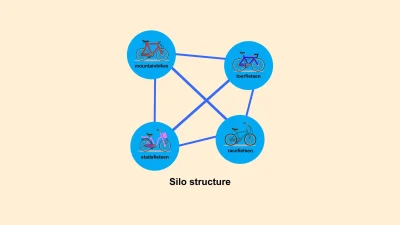Tracking cookies
Using the Internet as pleasantly as possible? Accepting tracking cookies contributes to this. What exactly are tracking cookies and how do they work on the Internet? We discuss the concept in detail here.
Tracking cookies are pieces of code in a browser for identifying and tracking the visitor. It may provide the user with a better user experience and in addition, it gives the website interesting opportunities, for example, for sending targeted advertisements.
A website and a user share information with each other: this is done through tracking cookies. This does happen with permission: when you open a website, a notification for allowing cookies almost always comes up. Tracking cookies are present in the background and here a user does not notice anything. The purpose of a tracking cookie is to track and identify the user. A user has the option of installing an adblocker that anonymizes Internet use.
Not every cookie is the same. In the table below, you can find the type of tracking cookie and how “aggressive” it is to a website user.
| Type of Cookie | Aggressiveness |
|---|---|
| Session cookies | Low – These cookies are stored temporarily and deleted as soon as the user closes the browser. They are mainly used to manage user sessions, such as remembering login information or keeping track of shopping carts. |
| Permanent cookies | Resource – These cookies remain on the user’s device until they are deleted or expire. They are often used to store user preferences for future visits and may also be used to track user activity over extended periods of time. |
| Third-party cookies | High – These cookies are set by a website other than the one the user is visiting. They are often used for cross-site tracking, retargeting and advertising purposes. Because of the privacy concerns they can pose, they are often considered the most aggressive type of cookies. |
| Supercookies | Very High – These cookies are more difficult to delete and may collect more detailed tracking information than regular cookies. They can also threaten the user’s privacy and are considered very aggressive. |
It is important for websites to be responsible and transparent in their use of cookies, including providing clear information to users about what cookies they use and why, and obtaining informed consent from users for the use of tracking cookies.
Tracking cookies certainly have an impact on the SEO of a website or page. It provides you with interesting information about your visitor, but you also have the opportunity to improve the visitor’s user experience. As a result, the visitor is more likely to return and make purchases faster. This in turn affects search engine optimization because it makes your website more relevant.
Please note that as of 2024, many things are going to change and third-party cookies will no longer be accepted.(1)
My advice
The use of tracking cookies is an interesting tool, yet it is important to keep an eye on it. There are special apps that allow you to view and manage cookies. There are codes that may reduce the functionality of a Web site. Other codes, on the other hand, are critical to the proper functioning of a Web site.
We recommend delving into the possibilities of tracking cookies and applying them when it offers benefits. This is how to get the most out of your website for yourself and for users.
- Prepare for phasing out third-party cookies. (s.d.). Google For Developers. https://developers.google.com/privacy-sandbox/3pcd






